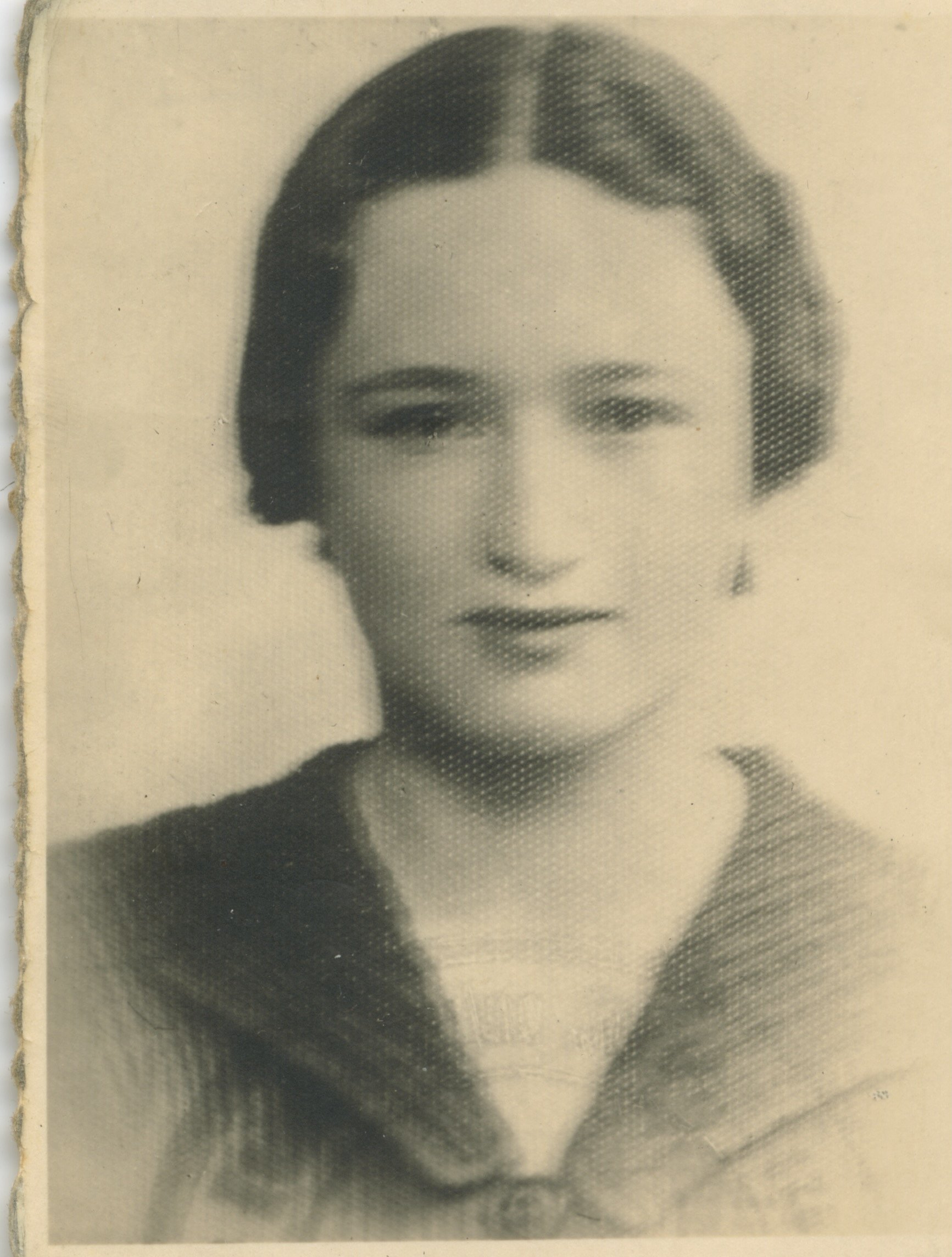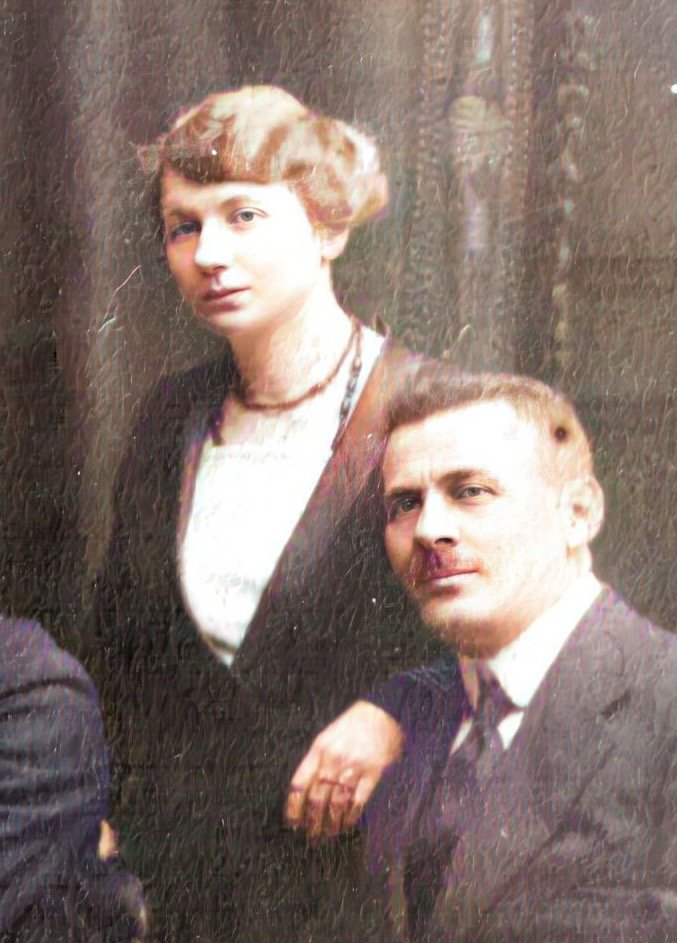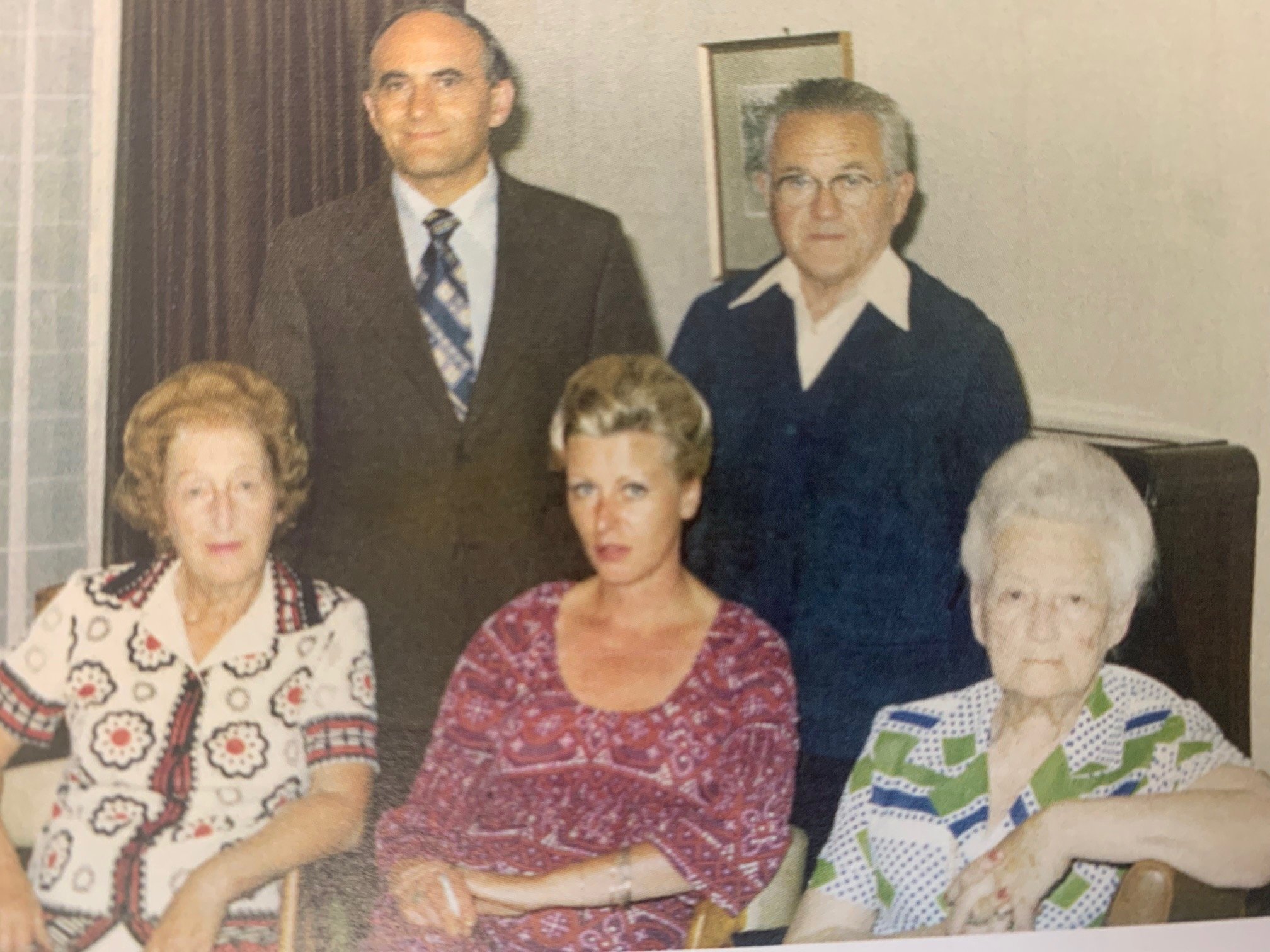Victims & Survivors
This section remembers all the members of Henry’s Bierzynski and Gayst families who perished as well as those that were lucky enough to survive the slaughter that was the Holocaust.
Theodora and Bernard Bierzynski, Henry’s parents
Both would be killed in 1942, Bernard by typhus in the crowded Tomaszow ghetto and Theodora in the Treblinka extermination camp.
Halina Bierzynska ne Aronson
b. 18 December 1920
m. 21 November 1942
d. 28 June 1945
Halina’s grave, Neustadt-Glewe 1945
Halina died of TB a month after liberation in June 1945. Her grave is marked as Halina Bierzynska in recognition of her marriage to Henry.
The cemetery was bulldozed by the East German government in 1969.
Hela Gayst, Henry’s cousin
Hela was the daughter of Henry’s maternal uncle Shimon.
Hela’s brother Harry managed to emigrate to Australia before the war but she perished with her parents in the Chelmno extermination camp in 1942, aged 24.
Regina Bierzynska, Dr Henry Bierznski’s first wife
Regina was arrested in the summer of 1941 along with her mother-in-law Berta, staying with her husband, her two teenage children and other Jewish people outside the ghetto in a house in the Bedkowska valley near Krakow, where they had lived since the outbreak of the war. She and Berta were shot by police and buried in a mass grave. After the war Dr Henry opened the grave and reburied his wife’s body, recognising her blonde hair.
Isador Stecki, Henry’s cousin
Isador and his wife and child lived with false ID outside the ghetto near Katowice. After seeing his wife and child killed by the Gestapo Isador handed himself in to the Gestapo and has never been seen again.
Matylda and Leon Stecki, Henry’s aunt and her husband
Matylda and Leon were incarcerated in the Czestochowa ghetto before being deported to the Treblinka extermination camp where they were gassed in October 1942.
Berta Bierzynka, Henry’s paternal grandmother
Matylda’s mother Berta was living with her son Dr Henry Bierzynski, his wife Regina and their children in the house in the Bedowska valley when she was arrested and shot alongside Regina by German police in the summer 1941.
Stephania Bierzynska and her husband Benjamin, Henry’s uncle
Stephania would disappear on a visit to Warsaw in 1942, during which she would try to get food and money to her sister, who was in the Warsaw ghetto. Benjamin died of natural causes in 1941.
Shimon Gayst, Henry’s maternal uncle
Shimon was Theodora’s brother and was gassed with his wife and daughter in the Chelmno extermination camp in 1942. His sister Paula married Max Rosenthal and had two daughters; Dora and Halina. Paula died of natural causes in 1940.
Dora emigrated to Australia in 1937 but Max and Halina were killed in Chelmno in 1942 (see below).
Red Cross Letter from Max Rosenthal to his daughter Dora Winikoff (nee Gayst), Henry’s cousin in Australia 1941.
This is the last letter to Dora from her father Max, who was in the Zychlin ghetto, close to their home town of Kutno, in a region of Poland which was then incorporated into Nazi Germany. The Zychlin ghetto was liquidated on 3 March 1942 with all inhabitants killed in the Chelmno extermination camp.
The letter reads;
“Dearest child, congratulations on your marriage it makes me very happy. The whole family welcomes your new occupation, Doctor Winokoff , your loving father.”
The Memorial at the site of the Extermination Camp at Chelmno
The inscription reads;
“We were all taken, from an old man to a baby, to between the towns of Kolo and Dabie.
We were taken to the forest and there we were gassed and shot and burned ..
So please let our future brothers punish our murderers.
Our friends who live in this area, we ask once again to spread word of this murder all over the world …"
Dr Henry Bierzynski, 1949
Henry’s uncle, who inspired Henry to do medicine and obstetrics. He lived with his second wife Natalia and children in post war Poland before emigrating to Australia in 1959.
Natalia Bierzynska and her baby Eve 1950
Henry’s uncle Dr Henry Bierzynski married Natalia Jumanska, who was an Auschwitz survivor. They had one child, Eve, being carried by her mother, who now lives in Melbourne Australia. This picture is on display in Yad Vesham in Israel.
Survivor’s day out.
L to R Hella ( Ignacy’s wife), Harry Gayst, Henry, Evelyn, Doris Gayst and Ignacy enjoy a day on the water in Sydney in the early 1950s.
Eve Bierzynski
Tony and Henry with Eve, daughter of Henry’s uncle Dr Henry Bierzynski, catching up on Sydney harbour in the early 1980s.
Dr Henry Bierzynski 1979
Henry visiting his uncle and medical mentor in Melbourne.
Harry Gayst and family 1970s
Harry was lucky to be able to emigrate to Australia in 1939. His family including his sister Hela all perished in Chelmno.
L to R standing Henry and Stephen Gayst
seated Carolyn, Linny, Harry and his wife Doris.
Dora Winikoff Henry and her husband Boris early 1970s
Dora Gayst was the niece of Henry’s mother. Dora was fortunate to be able to emigrate to Australia in 1937. She has one daughter Tamara who lives in Sydney. Her father Max and sister Halina died in Chelmno.
Halina’s sister Roma and mother Zosia
Henry and Linny visiting Roma and Zosia in Wellington New Zealand in the 1970s. Henry is standing next to Ernst Hermann , Roma’s husband.
Seated L to R Roma, Linny and Zosia
Adolf (Dolek) Bierzynski and his sister Krystyna Stamper 1979
L to R friend, Krystyna, Dolek, friend and Henry during Krystyna’s and Dolek’s visit to Sydney in 1979.
Henry Stecki and wife Zosia 1979
Henry and Zosia lived in Sczeczen Poland, pictured here in 1979.
The Ghost Tattoo
About The Ghost Tattoo
To the outside world, Henry Bernard was a hard-working and beloved family doctor on Sydney's Northern Beaches. Yet he was also a Holocaust survivor whose life was profoundly affected by the experiences of his past. He took extreme steps for his family's security, keeping a rifle near his bedroom and covering up his family's Jewish origin. He was obsessed with paying off debt - the German word for debt being the same as the word for 'guilt'. He kept his striped Auschwitz uniform with a picture of his mother in his wardrobe. These obsessions helped destroy his marriage and restricted any hope he had of conventional domestic happiness.
But Henry had a bigger secret and a deeper shame about what he had done during the war. He suffered privately until he began returning to Germany and Poland to confront his past and come to terms with the deaths of his parents and of Halina, the love of his life.
The Ghost Tattoo is the story of how Tony Bernard, Henry's eldest son, went on a forty-year journey with his father to solve the mystery of why Henry was the way he was, and how he finally came to understand the desperate choices Henry had made in the ghetto to try to keep himself and his family alive.




























